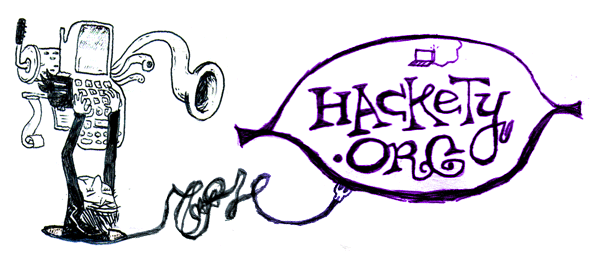The Funny Chip
Henri Bergson: This is just why the tragic poet is so careful to avoid anything calculated to attract attention to the material side of his heroes. No sooner does anxiety about the body manifest itself than the intrusion of a comic element is to be feared. On this account, the hero in a tragedy does not eat or drink or warm himself. He does not even sit down any more than can be helped. To sit down in the middle of a fine speech would imply that you remembered you had a body. Napoleon, who was a psychologist when he wished to be so, had noticed that the transition from tragedy to comedy is effected simply by sitting down.
Oh, is that all? Merely take a seat and it’s comedy? Hot socks. I’m afraid we have seriously overdone it. Prevailing notions of today dictate that a sit must be accompanied by a stamp of the foot, three Porky Pig impersonations and an offstage fart. How outmoded is this Napoleon?
And besides, what good is this clinical dissection of gags and guffaws? What thing is less a topic for seriousness than unseriousness? The minute we sober up, our topic has left the scene. It carries with it just such an inflatable jalopy in case of gravity.
On these matters, I will listen to none other than a professor who can hardly keep a straight face, but is constantly coughing behind his hand, weeping with I’m sorry, pardon me, just one moment, turning away from the class, loosing his complete composure, cackling wickedly, bravely bringing a hatchet down upon a ceramic donkey, only to discover the axe is rubber in its ricochet, and dashing around the room in nothing but briefs and hollandaise sauce. Even in that case, I am reluctant to say that much would be accomplished. The rubber axe, in particular, was poor execution.
But the only reason I’m reading this Henri Bergson essay (circa 1911) is for this:
Henri Bergson: (bottom of the page) ANY ARRANGEMENT OF ACTS AND EVENTS IS COMIC WHICH GIVES US, IN A SINGLE COMBINATION, THE ILLUSION OF LIFE AND THE DISTINCT IMPRESSION OF A MECHANICAL ARRANGEMENT.
I have never heard this sort of definition before. And if there is a link between laughs and engineering, I’d like to know. Possibly a hundred-year-old idea in all caps can be true.
Perhaps there are some codes or patterns to it. Jokes as a language hack? Tongue twisters being: unnecessary and playful obfuscations to an otherwise normal sentence, maybe? Knock-knocks: a kind of exception handling?
Doesn’t it strike you as tremendously design-patterns-ish that we even name the different types of jokes? Ah well, everything has its categories I suppose.
And what of loops? Well, read this in a soothing voice.
Ellis Posey: Comedy professor and author Melvin Helitzer claims there’s something magic about the number three. […] Here’s the way it goes: “Women are crazy today.” The rhythm is DEE-DEE-la-DEE-DEE, followed my a silent beat. Next comes the punch line, “Take my wife. Please.” DEE-la-DEE, la-DEE. The rhythm changes in the middle of the joke.
Don’t make me do that ever again.
0xDEE – 0xDEE – 0×1a – 0xDEE – 0xDEE = ?.
Equals… let’s see… negative seven-thousand one-hundred fifty-and-eight! Kxxx!
Is there a euphoria present in for (i = 0; i < 3; i++)? I can’t imagine.
Let’s consult Henri Bergson. You got anything for us on repetition in 1911?
Thus, you meet a friend in the street whom you have not seen for an age; there is nothing comic in the situation. If, however, you meet, him again the same day, and then a third and a fourth time, you may laugh at the “coincidence.” […] Such are the repetitions produced on the stage. They are the more laughable in proportion as the scene repeated is more complex and more naturally introduced—two conditions which seem mutually exclusive, and which the play-writer must be clever enough to reconcile.
Gah. I was really hoping he would say it was like a for loop. He says “two conditions”: if complex++ && if natural++. Don’t overload your incrementer and you’ll be just fine then. (One stamp of the foot, three Porky Pig impressions and an offstage fart later…) I don’t think this is going anywhere.
Maybe this whole humor mechanism conjecture is a bag of gas. Here’s what I’d say: Yes, there are some mechanics to it. I don’t know if you can purely measure out a joke. But you could look at any fragment of language as a series of instructions. Surely the pure mechanics of it aren’t the allure. I mean this is why puns generally suck. (And possibly why programmers seriously get off on puns.)
Still, sometimes the best jokes work like a series of instructions which act remarkably lifelike. Which assemble in a reflective way, which can be read a myriad of ways rather than merely straightforward.
Steven Wright: I planted some bird seed. A bird came up. Now I don’t know what to feed it.
It’s a little life machine. A machine where life is different. It’s kind of funny because it only takes such a small machine to create such a world.
Let’s look over today’s Favrd. The Transatlantic Monkeyshines Index.
Fireland: Is it possible to unfriend somebody to death?
In this machine, a push button politely severs an affection. But press it again and again.
CcSteff: It’s all fun and games until someone gets his dick slammed in a drawer.
Ah, a mechanized bureau possessing the ability to end the horseplay with a fast-acting penis removal utility. Delightful!
aedison: Grandma used to nag me. Now she can’t talk anymore. Call it a ‘stroke of luck’.
This machine is… the grandmother? This girl Edison is quite a master of puns, though I can’t tell you why so many puns otherwise fail. I really do wonder.
Look, kaput with the analysis. I’m done. There is something to this, but it’s not that computers are funny. Maybe just the link between humor, tragedy and hacking: spinning a lush reality from raw numerals? Leave me alone.


nertzy
Will the third comment be the funny one?
mdaines
This kind of reminds me of something I read about Twin Peaks — which at best seems to embody the tension between Intense Noir Drama and… “kitsch”? One possible illustration of that, maybe not the best.
JesseT77
I like to think that contemporary humour is a function of subjunctivity.
Humans cannot help but create imaginative, subjunct worlds when you tell them an engaging story. The setup is where you tell a story, and they paint a picture in their head. And then the punch-line is the trigger where you let drop a piece of information that simply doesn’t fit in the world they’ve painted; and they realize they had it flawed from the start. Humor rains from the catastrophe of the subjunct world they tear apart to rebuild, fitting the final piece of the puzzle.. and even the rebuilt world is usually quite a bit more clownish or garish than the beautiful, lush landscape you tricked them into setting up in the first place. It is the mental isomorph to a practical joke.
I challenge you to present me any joke that cannot be explained by this mechanic. Knock knock, blonde joke, road crossing chicken, the farmer’s daughter, not even Mitch Hedburg can escape my awexome lawgic ;)
jesset@gmail.com
Sunny
@nertzy It’s not :(
Chris
It’s like language is code, and we’re each our own VM. The more similar our internals, the more similar our reaction.
Okay so let’s say we crack the code and we figure out the algorithm. Isn’t there still the big question: why does running this algorithm give us pleasure? Humor is funny, but why do we love funny? Maybe this question has been answered but dammit I’m gonna ask it.
Josh
_why, I take it you are familiar with current efforts to teach computers knock-knock jokes. I heard an interview with the principal investigator once. Unfortunately, he’s a rather unfunny fellow. There’s probably some sort of irony in that.
technomancy
> On this account, the hero in a tragedy does not eat or drink or warm himself. He does not even sit down any more than can be helped.
Eh?
“But, in spite of all my troubles, give me leave to eat my supper. For nothing in the world is so shamelessly demanding as a man’s confounded stomach. However afflicted he may be and sick at heart, it calls for attention so loudly that he is bound to obey it. Such is my case: my heart is
sick with grief, yet my stomach insists that I eat and drink. It makes me forget all I have suffered and forces me to eat my fill.”
—Odysseus (from Homer’s Odyssey book 7 lines 214-221)
technomancy
Ah, but Odysseus makes it home to Penelope, so perhaps he’s not so tragic after all. Seeing Achilles grab lunch, now that would be out of character!
rcorsaro
Yes, let us not confuse the meaning of the word comedy. Which traditionaly means a story with a happy ending.
e. b. white
Analyzing humor is like dissecting a frog. Few people are interested and the frog dies of it.
Comments are closed for this entry.